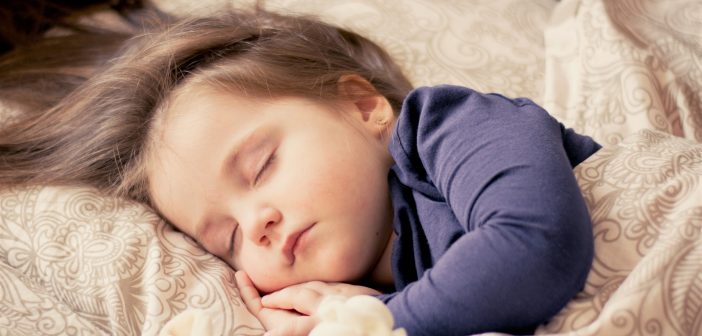While restful sleep is essential to physical and mental wellbeing at any age, it is particularly important for children who are still developing physically and mentally. According to the , children spend around 40 percent of their childhood asleep. Lack of sufficient sleep can lead to moodiness, learning difficulties and even health problems.
As such, paying attention to the quality of your child’s sleep is essential to ensuring that they make the most out of each day. Here are just a few steps you can take to ensure that your child falls asleep easily, sleeps throughout the night and wakes up feeling ready for the day’s activities.
- Regular Sleeping Routine
Children should be going to sleep and waking up at the same time each day. While an hour’s leeway is usually not a problem, any longer deviation from the routine could make it harder for your child to get to sleep. This should apply to both weekdays and weekends, meaning that you should be discouraging your child from sleeping in on school-free days. Likewise, letting children stay up on weekends can disrupt their circadian rhythm and make it more difficult for them to readjust to their daily routine.
- Powering Down
Encouraging your child to wind down before bedtime through reading or listening to soft music can make falling asleep a whole lot easier. As the glow of electronic screens can interfere with the production of melatonin, a naturally produced sleeping hormones, it is a good idea to impose a screens-off rule an hour before bedtime. As such, it is crucial to keep TVs and video games to the living room, and ensure that your child runs off their smartphone to help them settle down. There is an exception to the no-technology-in-the-bedroom rule. In the case of babies, a white noise app can soothe your little one to sleep by drowning out the noise of your family’s evening activities.
- Quality Pillow
While some pillow manufacturers provide pillows specifically designed for children, non-specific pillows are often just as suitable for the little ones. According to , a pillow that is both supportive and comfortable can have a positive impact on the quality of your child’s sleep. A poor quality pillow can, in turn, cause neck aches and even impede your child’s growth. It is generally recommended that children up to the age of two should not sleep with a pillow. Young , on the other hand, should sleep on a firm pillow that cradles their head, and encourages appropriate spinal and muscle development.
- Supportive Mattress
Just like a quality pillow, a mattress that is both comfortable and supportive plays a crucial role to the quality of your child’s sleep. While the firmness of a mattress is a matter of your child’s preference, a mattress that sags is a no-no, as it will shift your child’s spine out of alignment. As children grow quickly, it is a good idea to purchase a larger mattress that will serve your child for years to come, even if it is more expensive than the smaller version.
Durability is also important, as children’s mattresses can take a beating. Some of the features to look for when buying your child’s mattress include the thickness and density of foam, the type and gauge of coils, and the material used to cover the mattress.
- Physical Activity
Last but not least, exercise and sports not only help to keep your child healthy but burn physical energy to help your little one sleep at night. Activities, especially with their peers, help children gain confidence and reduce anxiety that can make it difficult for them to get to sleep. Even simple outings such as walking the dog, riding a bike, and spending time at playgrounds or parks can make a huge difference in your child’s nightly routine.





Your these tips really works. Thanks a lot
Such a very useful article. Very interesting to read this article.I would like to thank you for the efforts you had made for writing this awesome article.
thanks for sharing informative post…
Such a very useful article. Very interesting to read this article.